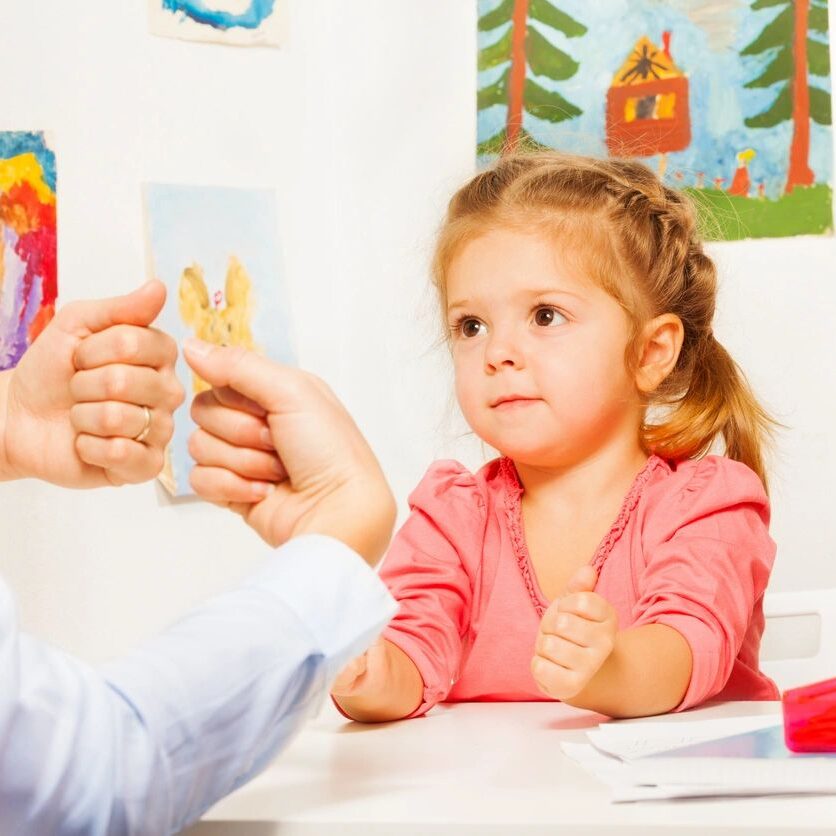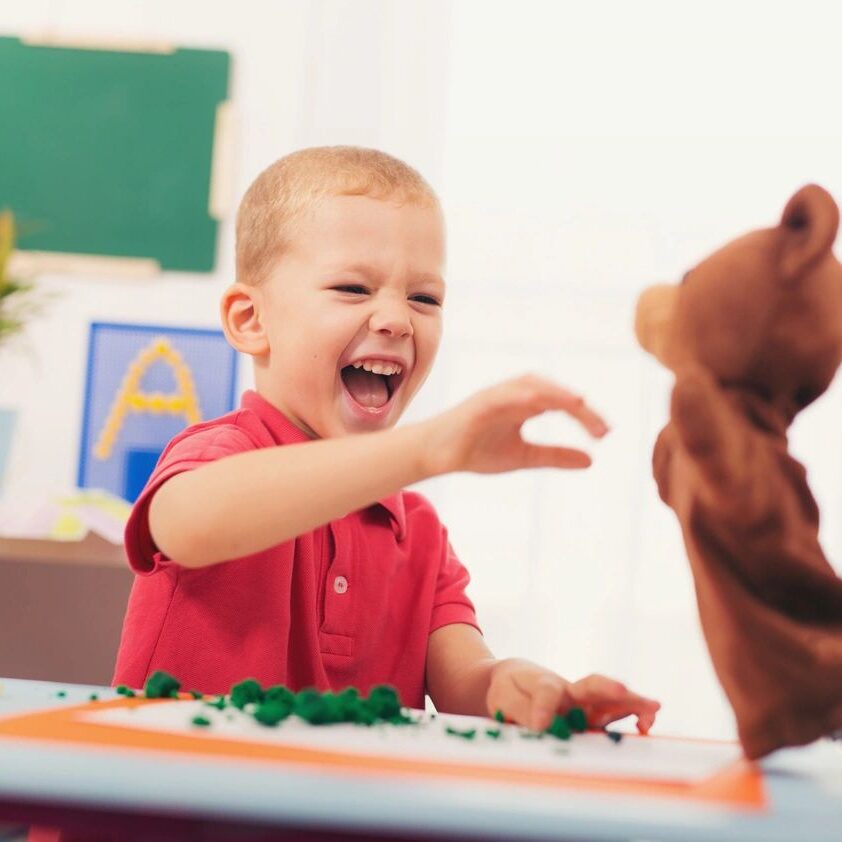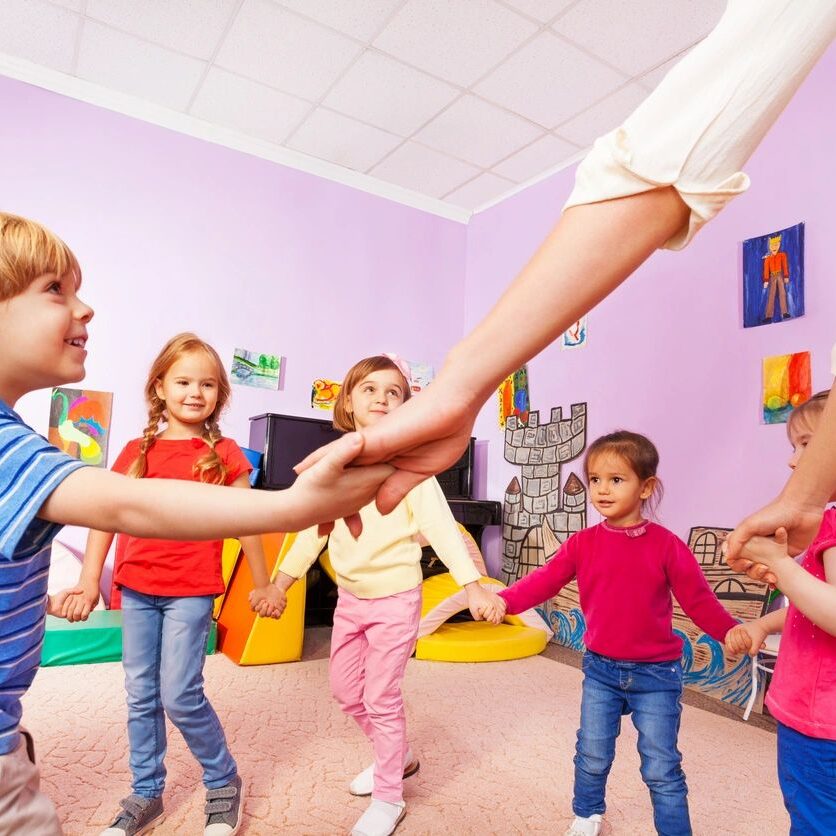Comprehensive and Effective Early Childhood Intervention and Preschool Programs
Turn to our experienced professionals for a wide range of early intervention and preschool services. These include:
Physical Therapy
This is the evaluation, assessment, and treatment of children who demonstrate limitations of functional movement. Some areas that physical therapists work on may include:
Our therapists strive to make personalized treatment sessions fun, interactive, and educational. We work towards helping kids gain independence in typical activities as they occur within their and their family’s lives. Our team continuously assess and monitor for progress.
We believe each child is unique. Our group also recognizes the importance of parent and family involvement to establish goals and provide carryover of activities.
Speech and Language Therapy
A speech-language pathologist (SLP) is a highly trained professional who evaluates and treats children who have difficulty with speech and language. On one hand, if a child has difficulty with speech, he or she struggles with the how-to of talking—the coordination of the muscles and movements necessary to produce speech.
On the other hand, if a child has trouble with language, he or she has trouble understanding what he or she hears or sees. A child may struggle to find the right words and organize those words in a meaningful way to communicate a message or hold a conversation.
Our speech-language pathologists treat a variety of conditions, including:

Speech Disorders
- Articulation - The way we say our speech sounds; intelligibility of speech depends on the accuracy of the use of sounds and how the child puts them into words/sentences
- Phonology - The speech patterns we use
- Apraxia - Difficulty planning and coordinating the movements needed to make speech sounds
- Fluency - Stuttering
- Voice - Problems with the way the voice sounds
Language Disorders
- Expressive Language - Difficulty using language when babbling and making sounds or words
- Receptive Language - Difficulty understanding language, specifically when a child is asked to point to a dog and they point to a cat
- Pragmatic Language - Social communication; the way we speak to each other and how we interact with peers
Other Disorders
- Oral-Motor Disorders - Weak tongue and lip muscles
- Swallowing/Feeding Disorders - Difficulty swallowing and chewing
- Deafness/Hearing Loss - Therapy includes developing lip reading, speech, and alternative communication systems
Special Instruction
Special instructors or special educators receive technical training to work with children who have learning, behavioral, emotional, and physical disabilities.
Cognitive Development
This refers to the changes over time in children’s thinking, reasoning, use of language, problem-solving, learning, and approaches to interaction with their physical and social environments. In very young children, ages from birth to 3, cognitive development involves:
- Learning to coordinate sensory input with emerging motor skills
- Development of object permanence
- Differentiation of self from others
- The emergence of representational thought and symbolic play
Components of Cognition
- Intelligence
- Arousal, orientation, attention, and executive function
- Memory (short and long term)
- Information processing functions (pattern recognition, facial-emotional content, imitation, cause-and-effect associations, processing multiple sources of information simultaneously)
- Representational thought
- Reasoning and concept formation (problem-solving, language, perspective-taking, social context, and rules)
Social-Emotional Development
This involves the progressive change in the way that children relate to their social world. Social-emotional development also covers their ability to differentiate and express emotions and perceive the emotional states of other individuals. This aspect refers to relating to others—the degree and quality of the child’s relationships with parents and caregivers, feelings about self, and social adjustments over time.
Emotions reflect an individual’s attempt or readiness to establish, maintain, or change the relationship between him and his environment. For example, a child who tackles an obstacle to achieve a goal is likely to experience happiness.

Family Training
Our special instructors usually provide family training. However, this will change depending on the needs of your child. We help with behavioral intervention and offer support, education, and guidance to individuals concerned with the kid’s unique developmental needs. Our team also enhances a family’s capacity to care for and improve the child’s growth.
Early Intervention (EI) Evaluation
We are pleased to offer Multidisciplinary Evaluations (MDE) and Supplemental, Occupational, Physical, Special Education, and Speech-Language Evaluations.
Our company has highly experienced staff qualified to assess children from birth to 3 years old.
We can conduct our evaluations at any place of your preference, whether it’s at your home, the daycare center, or even your grandma’s house. At least two of our pediatric-trained professionals will address your concerns. Our team will look at your child’s overall development, their strengths and needs, and the following areas:
1. Communication - Talking
2. Cognition - Learning
3. Social-Emotional - Interactions With Peers
4. Adaptive - Self-Help Skills, Behavior, Feeding, or Eating
5. Physical - Medical History, Gross Motor, Fine Motor, Sensory Skills

Complete Assessment at No Cost
Children may be eligible for a free comprehensive evaluation if they are suspected of having delays, have learning disabilities, or are at risk of developing disorders.
Inquire About the Early Intervention Program
If you have concerns about your child’s development, contact your county office today.
- Erie County: (716) 858-6374
- Niagara County: (716) 278-8180
- Chautauqua County: (716)753-4788
- Orleans County: (585) 589-2777
- Genesee County: (585) 344-2580 Ext. 5572
- Monroe County: (585) 753-KIDS
- Wyoming County: (570) 825-9441
- Cattaraugus County: (716) 373-8050

Service Coordination
An Ongoing Service Coordinator (OSC) is responsible for monitoring the delivery of Early Intervention services in accordance with the child's IFSP. OSC’s provide parents with continuing opportunities to share information, priorities, and concerns regarding their IFSP. A variety of methods are available to the ongoing service coordinator for providing such opportunities to families, as well as monitoring and coordinating the provision of services in the IFSP. These include home visits, observations and telephone contacts with the parent, other caregivers, and service providers. An OSC may also set up meetings with the parent and service providers to foster and support collaboration and integration of service strategies.
An OSC is also responsible for facilitating the child’s transition to preschool education services and/or other programs and services needed by the child and family as the child ages out of the Early Intervention Program, including the development of a transition plan. Most importantly an OSC is a welcoming and friendly voice on the other end of the phone, should there be any questions or concerns a family may have.
Connect With Us
Call us now to learn more about how we can help you or visit our Contact Us page to send us a message.
